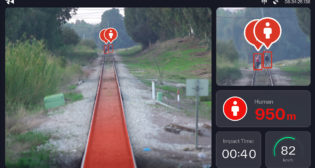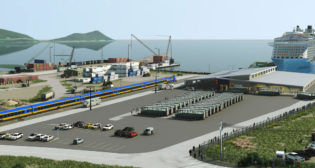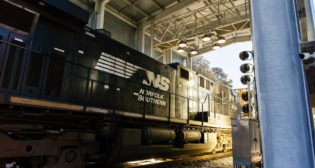
TSA Eyes Security Vetting for Certain Public Transportation, Railroad Employees (UPDATED Aug. 22)
Written by Marybeth Luczak, Executive Editor
(Shutterstock.com/ TierneyMJ)
The Transportation Security Administration (TSA) in May proposed vetting requirements for certain public transportation, railroad and over-the-road-bus (OTRB) employees under the Implementing Recommendations of the 9/11 Commission Act of 2007 (9/11 Act). On Aug. 22, TSA reported extending the comment period for the proposal.
Frontline or security-sensitive public transportation or railroad employees (see charts below) would be required to undergo a “name-based security background check against the consolidated terrorist watchlist and an immigration check,” TSA reported in the May 23 edition of the Federal Register. Also, security coordinators of railroads and OTRBs would be required “to be U.S. citizens, unless TSA waives this requirement after an appropriate background check of the individual and a satisfactory review of the consolidated terrorist watchlist.”
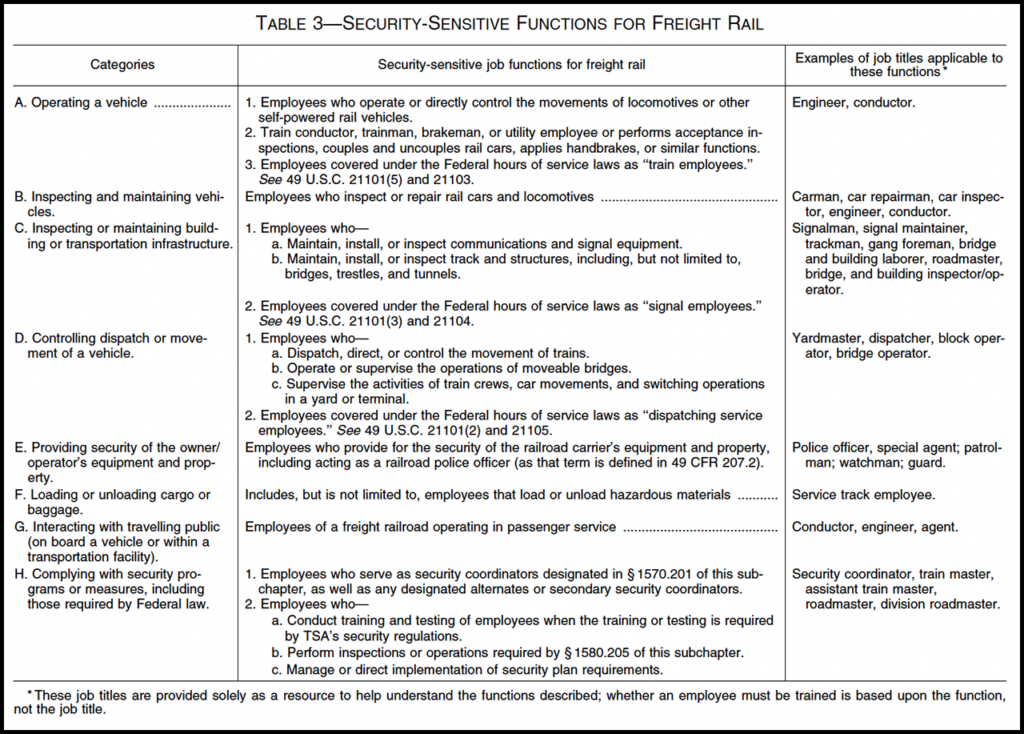
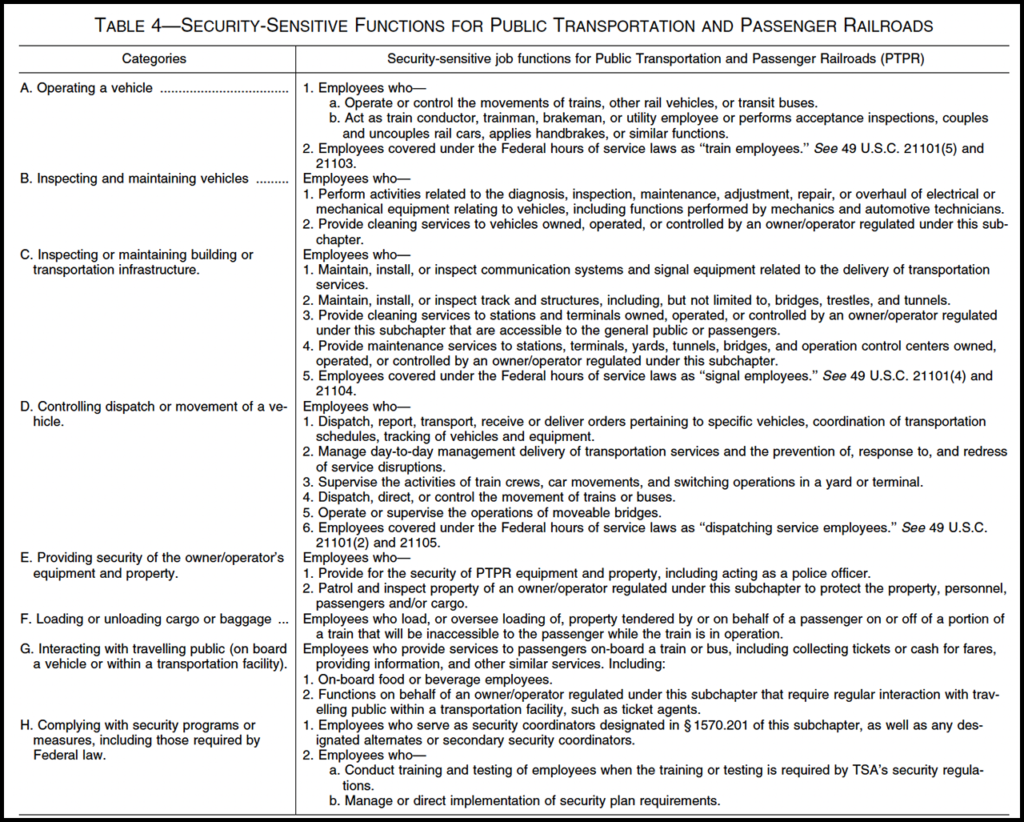
Additionally, TSA is proposing “appeal and waiver procedures for individuals who are adversely impacted by the vetting.” Also proposed: the establishment of user fees to recover TSA’s vetting costs.
UPDATE: TSA reported in the Aug. 22 edition of the Federal Register that it had extended the comment period from Aug. 21, 2023, to Oct. 1, 2023. “Interested parties have requested an extension of the public comment period to give them additional time to respond to the NPRM [Notice of Proposed Rulemaking],” according to TSA. “While TSA believes that the current 90-day comment period is sufficient for full and meaningful public participation, TSA agrees to extend the comment period to October 1, 2023, to allow the public an additional period to prepare and file comments.”
What prompted the TSA’s Notice of Proposed Rulemaking? The agency explained in the Federal Register (download below) that “attacks carried out by employees pose a higher likelihood of success and/or a larger impact due to employees’ knowledge of the systems, infrastructure, vulnerabilities and operations” as compared to attacks carried out by passengers. “Also, employees possess unique access to critical operations and areas, which permits them to move with ease in sensitive areas where similar actions by passengers would be more readily identified as suspicious activity, and increases the opportunity and confidence to commit an attack. Known or suspected terrorists (KSTs) are more likely to be responsible for a disproportionate number of all attacks as compared to their proportion of the population, and thus moving KSTs and other higher-risk individuals out of the ‘insider’ positions employees hold reduces risk, while affecting a very small percentage of all employees. Initial vetting inhibits applicants or existing employees from commencing or continuing their employment, which deters their ability to carry out an act. Recurrent vetting ensures employees who become threats can be removed quickly, reducing the overall net risk to this industry.”

